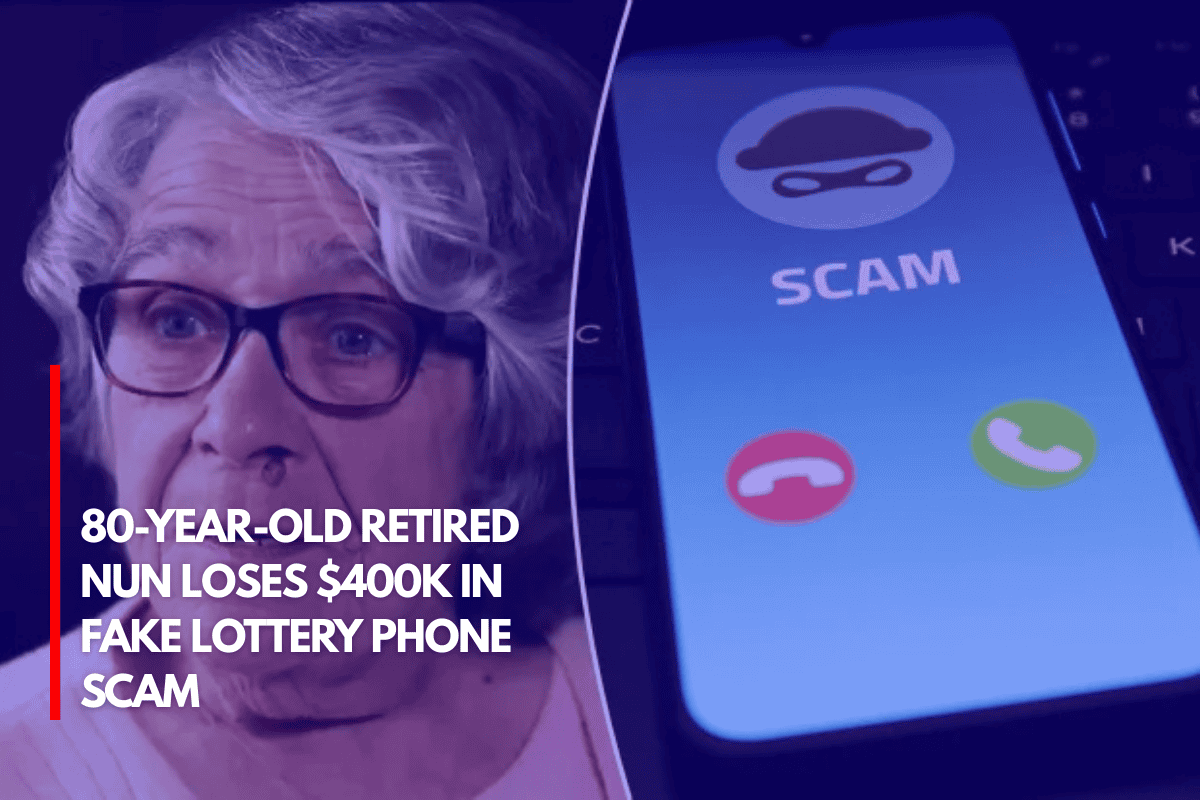When an 80-year-old retired nun fell for a vicious phone hoax, her peaceful retirement was completely upended. Rene Pientka, who hoped to enjoy a quiet retirement, lost more than $400,000 of her life savings to scammers who deceived her by promising her a fictitious lottery victory.
Her experience serves as a potent reminder of how these frauds still defraud innocent individuals in the United States and abroad, particularly the elderly.
How It All Started
In 2024, Rene got a postcard from Publisher’s Clearing House (PCH), a well-known sweepstakes company, telling her she had won $10 million and a new automobile. Knowing that actual winners are rarely contacted by mail, she originally disregarded it, but everything changed when she received a call months later verifying her prize.
The man who answered the phone sounded kind and professional. He informed her that she would need to pay sales and luxury taxes before she could get the reward. Rene chose to believe the caller as she was unable to look for scam alerts because she did not have access to the internet or a cell phone.
How the Scam Pulled Her In
The con artists began giving her little presents, such as a pizza and even an Amazonian plant, to make the reward appear genuine. She was reassured by this.
Rene began sending cheques, believing that the reward was genuine and that the taxes were a minor cost for millions. She used her retirement savings account (401k) to write five personal cheques totaling $400,000 in total.
The con artists tried a different tactic after she eventually stopped returning the calls out of suspicion. They said that Rene’s grandson was locked out of her car and dispatched a locksmith to her house. Fortunately, the locksmith noticed a problem and called the police.
What the Police Found
When the police became involved, they discovered that the money had been transferred across the nation to other victims of similar frauds rather than to the crooks themselves. They were referred to as money mules. They unwittingly assisted in transferring Rene’s funds to global fraud schemes.
It is unlikely that Rene will ever have her money back due to the way it was transferred from one victim to another and then abroad.
She revealed, “I no longer have the money that could be available for medical care.” To help her pay for her essential living expenses, her family has now launched a GoFundMe page.
The Rising Threat of Phone Scams
There are numerous stories like Rene’s. Over time, phone frauds have increased in frequency and severity. Recent data indicates the following:
Americans wasted $39.5 billion to phone scams in 2022.
There were roughly 68.4 million impacted.
In 2021, scam victims lost an average of $567, up from $182 in 2020.
Voice calls, not messages, are how most frauds operate.
People typically get between 18 and 31 spam calls each month.
How to Protect Yourself from Phone Scams
Although many frauds are clever and convincing, you can safeguard yourself by taking some easy precautions:
Never give out bank or personal information over the phone unless you are certain of the person you are speaking with.
Don’t believe phone calls telling you that you have won anything, especially if they want money to give it to you.
Use the National Do Not Call Registry to register your number.
To screen scam calls, install spam-blocking apps like Hiya, Truecaller, or Nomorobo.
Restrict the frequency of your phone number sharing, particularly on the internet.
What We Can Learn from Rene s Story
Even intelligent, cautious people can fall for well-planned frauds, as demonstrated by Rene Pientka’s tragic experience. We learn from her story that:
A legitimate lottery or sweepstakes will never demand payment before awarding you with your win.
Fraudsters are become more convincing by providing little presents and using legitimate corporate names.
Teaching elderly people and those without internet access about contemporary scams is essential.
Before it’s too late, we should all discuss phone scams with our parents, grandparents, and neighbors and assist them in recognizing the warning signs.
Source









